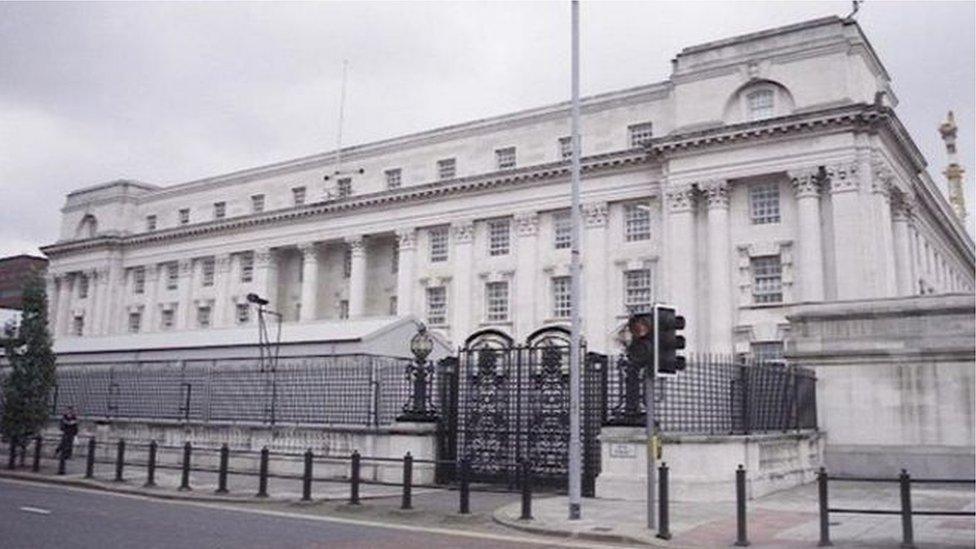Abortion: Appeal against High Court ruling begins in Belfast
- Published

The justice department believes the High Court ruling could lead to a widening of the abortion law
An appeal against a High Court ruling that abortion law in Northern Ireland is "incompatible" with human rights law has begun in Belfast.
The appeal has been taken by the Department of Justice and Northern Ireland Attorney General John Larkin.
In December, a judge ruled the law does not comply with the European Convention on Human Rights in cases of fatal foetal abnormality or sexual crime.
That case was brought by the Northern Ireland Human Rights Commission.
However, the justice department believes the ruling by the High Court could lead to a widening of the abortion law.
The Department of Justice and the Attorney General are appealing last year's ruling by Judge Horner that Northern Ireland's abortion law is incompatible with human rights.
Opening the appeal and in one of 10 opening submissions, the Attorney General said Judge Horner was clearly wrong in his decision when he said there was no life to protect and he added this was demonstrated by the grief shown by Sarah Ewart who was clearly mourning the loss of a baby.
The Attorney General also argued that there was no proper basis for a doctor to say a foetus has a fatal foetal abnormality.

The Human Rights Commission wants to see a change in Northern Ireland's abortion law
In an unusual move, the Human Rights Commission is due to cross appeal the Justice department and Attorney General's challenge to the High Court ruling.
It is calling for the choice of accessing a termination of pregnancy in circumstances of serious malformation of the foetus, including fatal foetal abnormality, rape or incest without being made a criminal act to be made available in Northern Ireland.
The current abortion legislation differs from the rest of the UK as the Abortion Act 1967 was never extended to Northern Ireland.
Currently, a termination is only permitted in Northern Ireland if a woman's life is at risk, or if there is a risk of permanent and serious damage to her mental or physical health.
- Published27 January 2016

- Published16 December 2015

- Published16 December 2015

- Published25 January 2016
